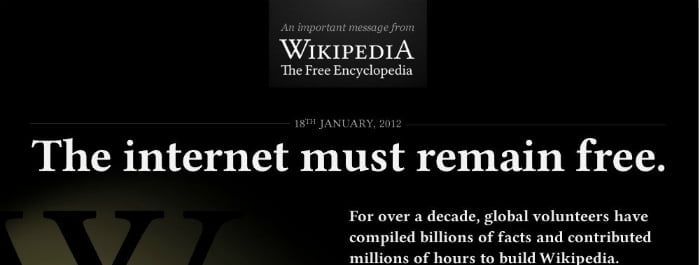Both the PIPA and SOPA bills have been tabled for now by Congress. However, another bill was brought to Congress on January 18, 2012 regarding online piracy. For more information you can take a look at my article on the aftermath of SOPA and PIPA. We have won the battle, but not the war.
If you’re still looking to find out what exactly PIPA is or was, well then here you go:
PIPA is short for the “Protect IP Act“. The act is a reorganization of the 2010 COICA (Combating Online Infringement and Counterfeits Act) that did not pass legislation.
The current version of PIPA was introduced to the Senate on May 10, 2011.
For full details you may want to read the full version. Let me warn you though- it is for advanced “legalese” readers only.
PIPA is a very similar bill to the SOPA (Stop Online Piracy Act) that has been causing a buzz throughout the internet.
Both bills are advertised as helping to combat online piracy and protect internet users. The actual content contained within the two bills however, is rather frightening.
The full version can be daunting to read (probably done on purpose by lawmakers) but there is a shortened version written by Mashable.com that serves as a good translation.
What Happens if PIPA is Passed?
- PIPA contains provisions that will allow the federal government to have an unconstitutional amount of power in regards to censoring Americans’ access to the internet.
- All websites on the internet will be liable for content added by users – comments, status updates, etc.
- Social media networks like Facebook could face prosecution over content uploaded by users.
- The Federal Government could forcibly require that Internet Service Providers (ISPs) block websites deemed as “enablers” of copyright infringement.
The primary supporters of PIPA and SOPA are members of the music and film industries. Many online media sources are opposed to the act including Google, Wikipedia, Reddit, WordPress, Mozilla and Twitpic. Wikipedia actually performed a blackout in protest of the PIPA bill on January 18, 2011.
A more complete list of online companies and entities protesting the PIPA bill can be found on SOPAStrke.com.
Those in protest of the two bills believe that there are other ways to combat copyright infringement, including holding content producers responsible for protecting their own content, without jeopardizing the digital rights of the United States online community.
I would love to hear your thoughts on the PIPA and SOPA bills in the comments section below – before the government forces me to censor your opinions!
The most helpful thing you can do to block the passing of the SOPA and PIPA bills is to contact congress and express your discontent.




